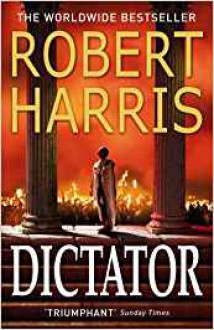
Leon Uris bettet die historischen Ereignisse rund um die Gründung des Staates Israel in einen umfangreichen Roman ein.
Kurz nach dem Ende des 2. Weltkrieges warten Tausende Juden in Lagern in Westeuropa und Zypern auf die Einreiseerlaubnis nach Palästina, das zu dem Zeitpunkt von Großbritannien besetzt ist. Da trifft die amerikanische Kinderkrankenschwester Kitty auf Zypern auf den jüdischen Agenten Ari, der plant, die Blockade vor Palästina mit einem Schiff voller jugendlicher Flüchtlinge zu brechen, und Kitty um Hilfe bittet. Damit nimmt die Geschichte ihren Lauf.
Das, was diesen Roman von der Durchschnittskriegsromanze abhebt, ist sicherlich die eindrückliche Schilderung der jüdischen Geschichte: von Ghettos und Pogromen bis hin zum Holocaust, Gaskammern und Internierungslagern *nach* der Befreiung. Dazu eine britische Regierung, die sich gar nicht mit Ruhm bekleckert, sondern Versprechen bricht rechts und links... alles nur des Zugangs zum Öl bzw Suezkanal. 70 Jahre später haben sich die politischen und wirtschaftlichen Interessen nicht so geändert, diese Nebenbemerkung sei erlaubt.
Dazu kommen die individuellen Schicksale von Aris Vater und Onkel, die aus Osteuropa Ende des 19. Jahrhunderts zu Fuß vor den Pogromen flüchten. Während Aris Vater Barak den Weg der Verhandlungen einschlägt, schließt sich der Onkel Akiba einer terroristischen Freiheitsbewegung an. Anhand ihrer Geschichte erzählt Uris die Entstehung der Kibbuze und schlußendlich die Gründung des Staates. Dann sind noch Dov Landau, ein polnischer Bursche, dessen gesamte Familie ermordet wurde und der nichts anderes als Ghetto und KZ kennt und dementsprechend wütend und desillusioniert im zypriotischen Lager landet und schließlich eines der Kinder von Aris Plan wird - genauso wie Karen, die das Glück hatte, rechtzeitig nach Dänemark geschickt zu werden, und so dem Holocaust entkam, die aber nun auf der Suche nach ihrem überlebenden Vater auch den Weg nach Palästina via Zypern und Aris Schiff sucht.
Ari selbst ist der typische Freiheitskämpfer, der Held mit Tiefgang sozusagen. An ihm im Einzelfall, aber sozusagen als Stellvertreter für die gesamte jüdische Gesellschaft, zeigt Uris die Formung des Charakters durch Verlust, Tod und Kampf: Nichts wird geschenkt, alles muss erkämpft werden (sei es durch Urbarmachung von Sümpfen oder Kampfhandlungen), und Schicksalsschläge werden ertragen und machen stärker. Genau diese Charakterisierung als absolut gut und die folgende Schwarz-Weiß-Malerei mit einfach nur abgrundbösen, verräterischen "Arabern", näher definiert wird da nicht, sie morden, rauben und vergewaltigen, haben keine Kultur, Hygiene oder sonstwie Wissen, und die Briten, die mit wenigen Ausnahmen auch einfach nur böse sind, ist mir zu wenig differenziert. Das mag grob geschichtlich stimmen, aber ein Roman lebt an sich von den Schattierungen, ganz besonders, wo's klare Fronten gibt.
Blass bleibt Kitty, die nicht-jüdische Kinderkrankenschwester, Mann und tote Tochter betrauernd (kein Zusammenhang mit dem Krieg), denn ganz erschließt sich mir ihre Motivation nicht. Zu Anfang ist sie richtiggehend von Karen besessen, in der sie sozusagen eine Art Tochterersatz sieht und die sie gleich nach Amerika adoptieren will. Dazu kommen ihre Argwohn gegenüber dem Fremden, Jüdischen. Nur wegen Karen und weil sie sich irgendwie zu Ari hingezogen fühlt, nimmt sie an dem Abenteuer der Überfahrt nach Palästina teil. Ihre Gefühle zu Ari aber kann sie nicht wirklich ausleben, weil der "nicht weint" und sie auch nicht zu brauchen scheint. Auch hier wünscht sie also eine Art von Abhängigkeitsverhältnis, das mir nicht wirklich gesund oder wie eine gleichberechtigte Partnerschaft erscheint. Und genau mit dieser Charakterisierung aber fällt die Wirkung der gezeigten Romanze flach.
Somit bleibt ein ausgezeichneter Eindruck der jüdischen Geschichte, und ja, aus diesem Teil kann man als Nicht-Jude definitiv viel erfahren, der Rest allerdings sackt doch ins Durchschnittliche ab. Schade.


 Log in with Facebook
Log in with Facebook 









